MercoPress. South Atlantic News Agency
Tag: Dilma Rousseff
-
Wednesday, July 20th 2011 - 22:21 UTC
Lula da Silva again to the rescue of President Rousseff facing cabinet setback
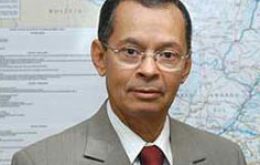
Former Brazilian leader Lula da Silva said President Dilma Rousseff managed the latest political crisis in the cabinet ‘correctly’ and is proving she has the capacity to lead “in this and in all situations”.
-
Monday, July 18th 2011 - 08:50 UTC
Brazil launched the construction of four Scorpene-class attack submarines

The construction of four diesel powered Scorpene-class attack submarines for the Brazilian Navy was launched on Saturday at a plant near Rio de Janeiro.
-
Saturday, July 16th 2011 - 07:25 UTC
Move closer to Brazil politically and economically, says US Foreign Relations Council
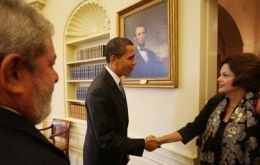
Influential foreign policy experts at the New York based Council on Foreign Relations (CFR) think the United States should move closer to Brazil politically and economically and recommend the creation of a Brazilian affairs office at the National Security Council.
-
Friday, July 15th 2011 - 16:31 UTC
Plan to support Brazilian industry from foreign protectionism to be announced August 2

Brazil’s president Dilma Rousseff announced Thursday night the launching of a new plan aimed to boost and protect Brazilian industry against international competition and at the same called for a technological development leap forward.
-
Thursday, July 14th 2011 - 07:17 UTC
Stormy forecast for President Rousseff ten-party ruling coalition
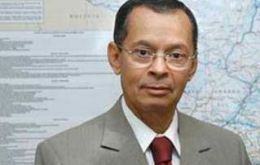
Brazilian president Dilma Rousseff is facing further political unrest in the ruling coalition following the naming of a new Transport Minister, apparently a unilateral decision that was not shared by several allies.
-
Saturday, July 9th 2011 - 07:29 UTC
Brazil offers Venezuelan leader Chavez specialists to help him overcome cancer

Brazilian President Dilma Roussef offered Venezuela leader Hugo Chávez her support over the mandate’s battle against cancer. According to the Presidential House press Secretary, Rousseff expressed her sentiments during a phone call conversation held this morning.
-
Wednesday, July 6th 2011 - 22:41 UTC
Brazil’s (5%) Transport minister resigns following allegations of corruption
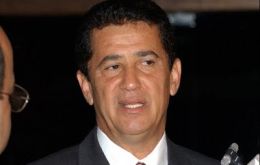
Brazil's transport minister became the latest top official to quit because of corruption allegations, adding to the recent struggles of President Dilma Rousseff's six-month-old government.
-
Tuesday, July 5th 2011 - 06:08 UTC
President Rousseff relations with 10 party coalition remain strained
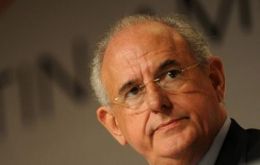
The six-month old administration of Brazilian President Dilma Rousseff’s is again under strain following on her strong character reactions, thus casting doubts about the passing of her legislative agenda, which is already considerably delayed.
-
Monday, July 4th 2011 - 04:23 UTC
Brazilian Transport ministry suspends four top officials on corruption claims
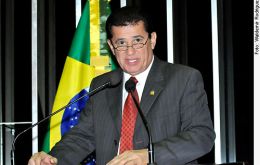
Four of the top officials in Brazil's Transportation Ministry have been temporarily suspended from their posts after a magazine reported on fraud they allegedly committed in several bidding contests on public works.
-
Thursday, June 30th 2011 - 07:23 UTC
Brazil calls for conclusion of EU/Mercosur trade talks and warns about cheap imports

Brazilian president Dilma Rousseff said it was urgent for Mercosur/European Union trade negotiations to conclude although also emphasizing the need to promote and intensive South/South relations, but warning that some outer region countries are intent in “sending us what they can’t sell in developed countries”.
